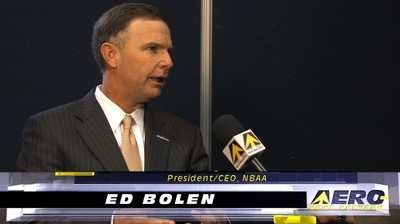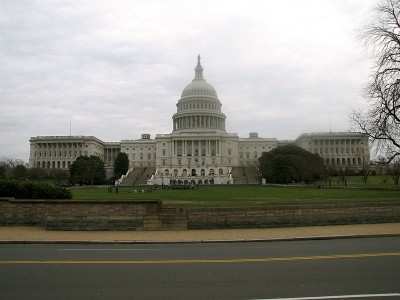Sat, Jul 23, 2011
Bill Says Emissions Trading Scheme Has Negative Consequences
For U.S. Economy
The NBAA on Thursday praised the bipartisan leadership of the
House Transportation Committee for introducing legislation
prohibiting U.S. participation in a European-led Emissions Trading
Scheme (ETS) that would impose new fees on U.S. aircraft flying
into and out of the European Union.

House Transportation Committee Chairman John L. Mica (R-7-FL)
and Ranking Member Nick J. Rahall (D-3-WV), along with Aviation
Subcommittee Chairman Tom Petri (R-6-WI) and Ranking Member Jerry
Costello (R-12-IL), led other House lawmakers in introducing the
bill, the "European Union Emissions Trading Scheme Prohibition Act
of 2011."
"Chairman Mica and Subcommittee Chairman Petri, and Congressmen
Rahall and Costello and their colleagues are to be commended for
taking strong action to prevent the EU from implementing a plan
that will have negative economic consequences for our economy, and
for business aviation," said NBAA President and CEO Ed Bolen. "In
spite of our industry's decades-long progress in reducing
emissions, the costly fees would be levied at a time when our
industry is just beginning to recover from a prolonged economic
struggle, and the House bill is a welcome response to this reality,
and to the importance of aviation in the U.S."

Bolen noted that business aviation has long led the way in
promoting advances aimed at mitigate the industry's environmental
footprint, including application of new technologies that mean
today's general aviation aircraft are cleaner, quieter and more
fuel efficient than ever. In addition, the industry has long
embraced operational advances that reduce aircraft emissions
through efficiencies in aviation system use.
"While the industry will continue working to minimize its carbon
footprint, we welcome this strong signal from government leaders
that emissions policies, like all aviation policies, should be set
by the International Civil Aviation Organization (ICAO)."
More News
Aero Linx: Model Aeronautical Association of Australia MAAA clubs are about fun flying, camaraderie and community. For over 75 years, the MAAA has been Australia’s largest fl>[...]
Touchdown Zone Lighting Two rows of transverse light bars located symmetrically about the runway centerline normally at 100 foot intervals. The basic system extends 3,000 feet alon>[...]
“Discovery and innovation are central to our mission at Virgin Galactic. We’re excited to build on our successful record of facilitating scientific experiments in subor>[...]
How To Get A Story On Aero-TV News/Feature Programming How do I submit a story idea or lead to Aero-TV? If you would like to submit a story idea or lead, please contact Jim Campbel>[...]
Student Pilot Reported That During Rotation, “All Of A Sudden The Back Of The Plane Kicked To The Right..." Analysis: The student pilot reported that during rotation, “>[...]
 ANN's Daily Aero-Linx (05.02.24)
ANN's Daily Aero-Linx (05.02.24) ANN's Daily Aero-Term (05.02.24): Touchdown Zone Lighting
ANN's Daily Aero-Term (05.02.24): Touchdown Zone Lighting Aero-News: Quote of the Day (05.02.24)
Aero-News: Quote of the Day (05.02.24) ANN FAQ: Contributing To Aero-TV
ANN FAQ: Contributing To Aero-TV NTSB Final Report: Cirrus Design Corp SR20
NTSB Final Report: Cirrus Design Corp SR20




